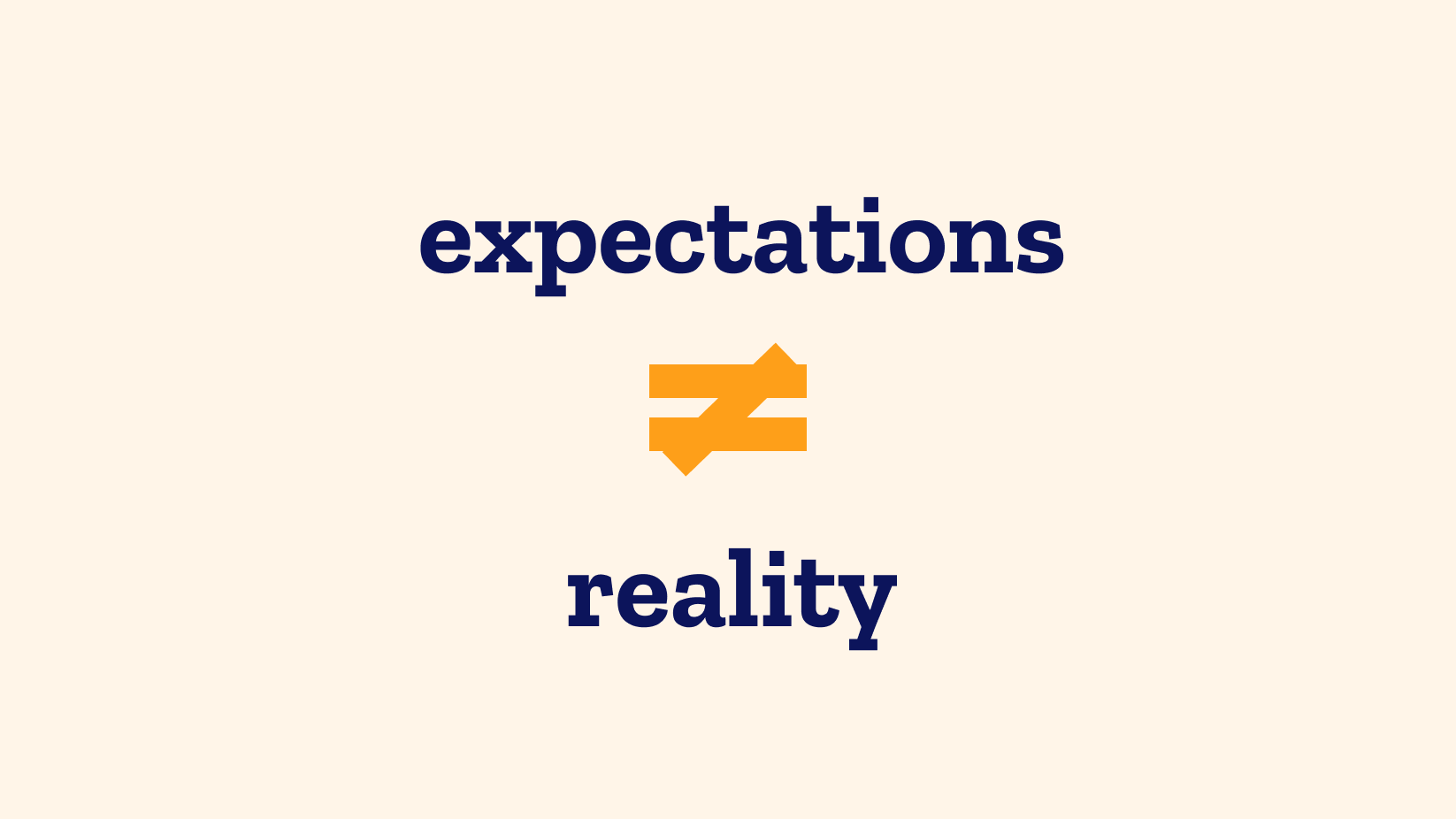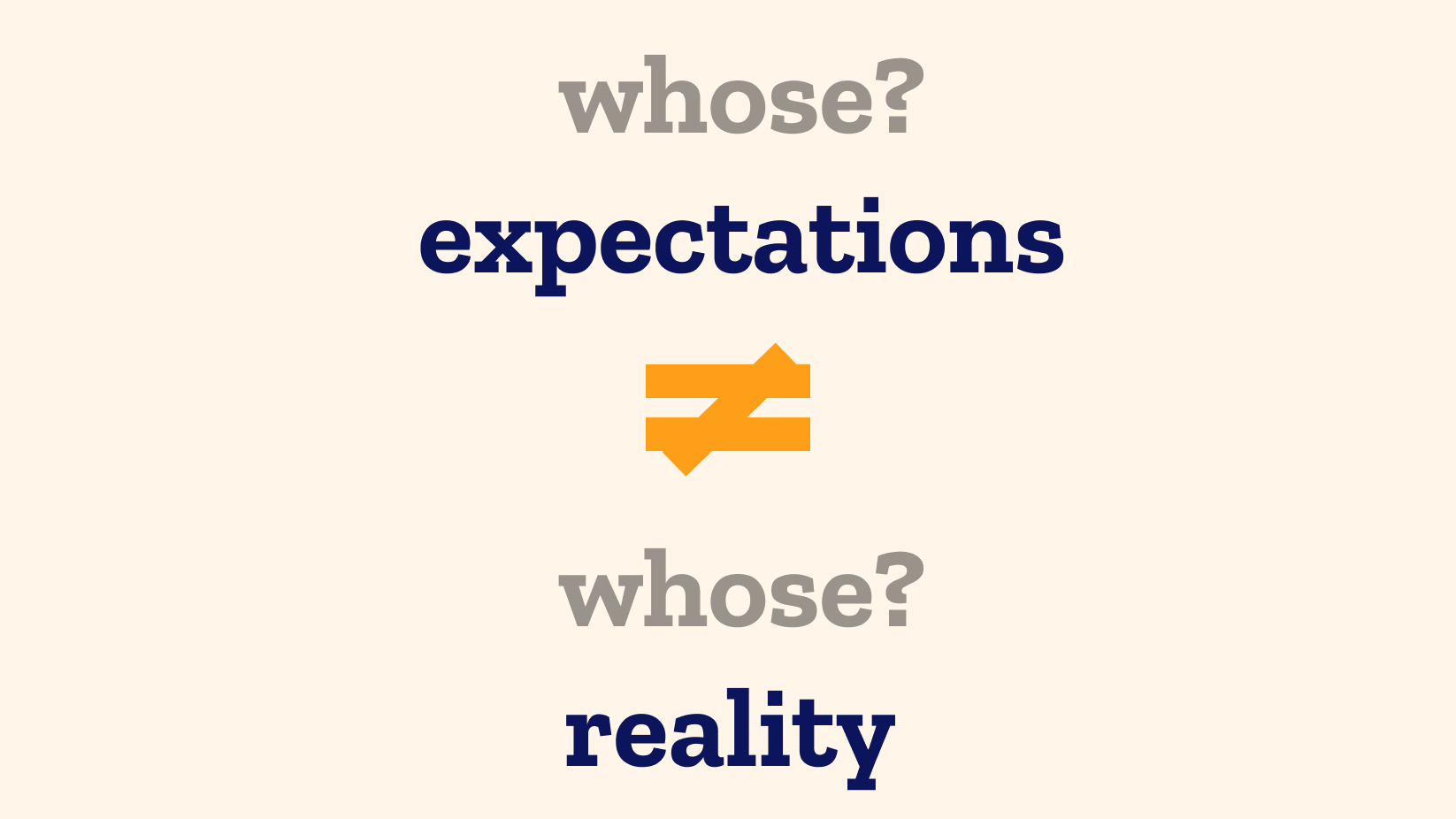A more useful way to navigate underperformance
Whose reality is it?

Recently, as I was preparing for interviews, I was thinking about how I handled underperformance throughout my career. The more I thought about it, the more I understood that I've been looking at underperformance in a way that made it difficult to understand the issue.
The way I looked at underperformance is this: someone isn't meeting the expectations of their role. As a manager, I receive a signal that someone isn't doing well, investigate, and discuss if needed. Cool.
But it's more useful to think of underperformance as a mismatch between expectations and reality. But, as none of these can exist on their own, it's best if we ask ourselves: whose expectations are these? and whose reality?

Adding the possessive to both of these things makes discussing underperformance a lot easier. Because then, your role as a manager changes, to understand the different perspectives on both expectations and reality, and how they affect your team. In that sense, addressing underperformance becomes a quest to understand and align the different perspectives for how we expect someone to be doing versus how they are actually doing.
Ivan's 🪴 Newsletter
Join the newsletter to receive the latest updates in your inbox.
